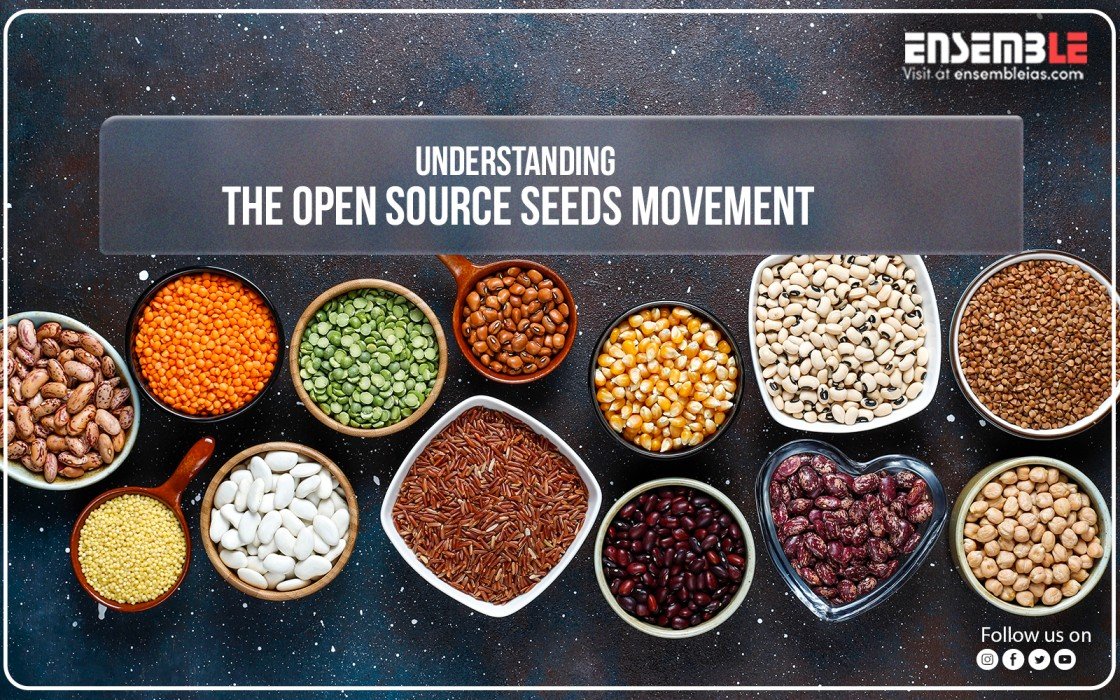The open source seeds movement is gaining momentum globally as a response to the monopolization of plant varieties by a few corporations that have acquired exclusive rights over seeds through plant-breeders’ rights and patents. This movement seeks to promote the free exchange of seeds, democratize access to plant genetic resources, and safeguard the freedom to innovate.
Why is it in the news?
The open source seeds movement is increasingly making headlines as more people become aware of the importance of preserving seed diversity and promoting sustainable agriculture. With the ongoing debates around farmers’ protests and agricultural reforms, the open source seeds movement provides an alternative model for seed innovation that is farmer-centric and community-driven.
Understanding the entire Open Source Seeds Movement
The open source seeds movement is based on the principles of open-source software, which advocate for free and unrestricted access to the source code of computer programs. The movement’s goal is to apply these principles to plant breeding and genetics, making genetic resources available to all and promoting collaboration and innovation among farmers, scientists, and breeders.
Decoding the Story
Farmers have traditionally shared seeds without seeking exclusive rights over them. However, with the emergence of the global intellectual property rights regime over plant varieties, there was a need to open-source seeds.
– Plant breeders’ rights and patents conferred exclusive rights over plant varieties to their developers, limiting farmers’ freedom to innovate and exchange seeds.
– The open source seeds movement seeks to promote a more equitable and democratic approach to seed innovation.
The man who pioneered this Idea
Richard Stallman, the U.S. programmer who pioneered this idea, also developed the General Public License (GPL), the first of the ‘Free and Open Source Software’ licences: it used copyright law to protect users’ rights and prevent misappropriation. If a piece of code is licensed GPL, then modifications to it should be GPL as well; this requirement also furthered the use of the licence.
What are Plant-breeders’ Rights and Patents?
Plant-breeders’ rights and patents are two modes of intellectual property rights protection in agriculture. These mechanisms restrict farmers’ rights and freedom to develop new varieties using germplasm from IP-protected varieties, increasing the number of IP-protected plant varieties. These mechanisms have triggered many problems and issues, including the State’s intervention in Bt cotton seeds in India.
Agriculture and how IP is Safeguarded in the Sector
The private sector dominates the seed sector, triggering the need for alternatives. As public sector breeding declined and the private sector began to dominate the seed sector, the need for alternatives became keenly felt. This is when the success of open-source software inspired a solution. In 1999, plant-breeder named T.E. Michaels suggested an approach to seed innovation based on the principles of open-source software. In India, CSA developed a model that included an agreement between CSA and the recipient of the seed/germplasm.
What is Open Source Seed?
Open-source seeds are those that are freely available to everyone, and their genetic information can be modified, shared and improved upon by all without restriction. The open-source model for seeds and plant varieties is:-
Farmer-centric,
Democratizing access to plant genetic resources
Promoting collaboration
Safeguarding the freedom to innovate
Conclusion:
The open source seeds movement offers an alternative model for seed innovation, one that is farmer-centric, community-driven, and based on the principles of open-source software. This movement seeks to promote the free exchange of seeds, democratize access to plant genetic resources, and safeguard the freedom to innovate, thereby ensuring food security and climate resilience. As IAS aspirants, it is crucial to understand the implications of the open source seeds movement for agricultural policies, farmer welfare, and food security.
For Best Online Courses for UPSC VIsit: https://ensembleias.com/online-courses/




